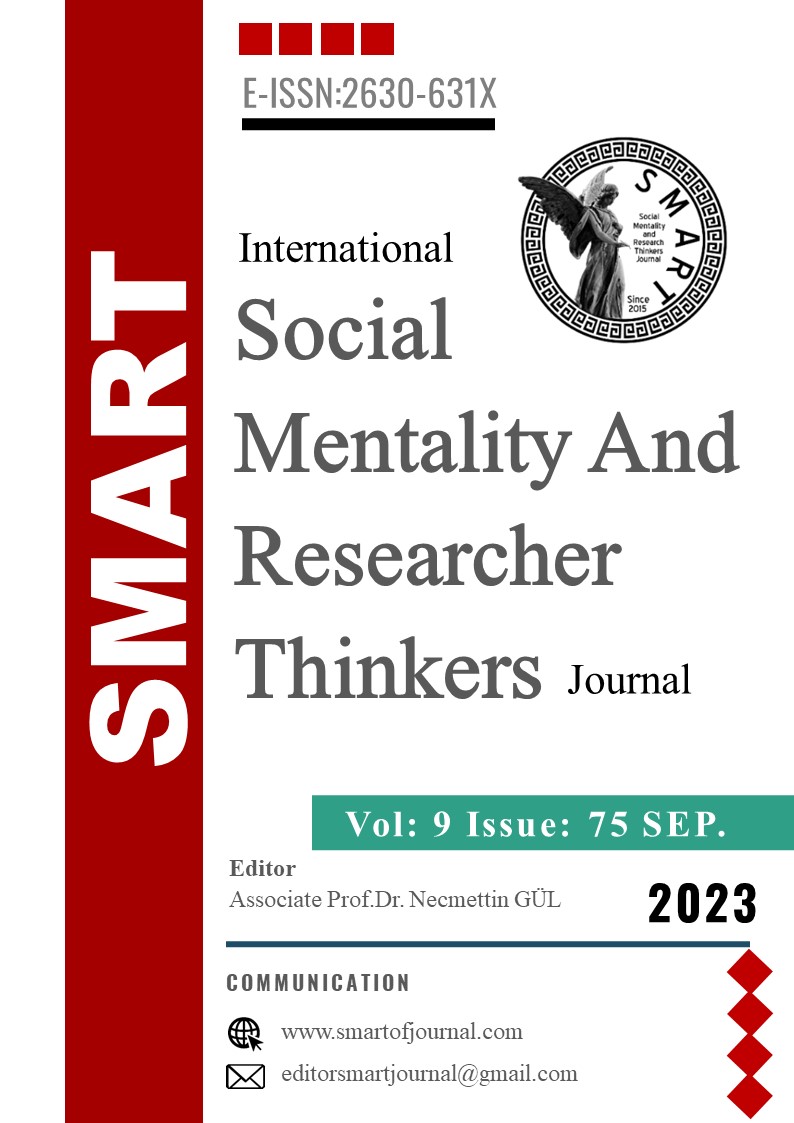Author :
Abstract
|
Bu araştırmanın temel amacı, İzmir ilindeki ilkokul öğretmenlerinin, Covid-19 sürecinde, eğitim-öğretime yönelik karşılaştığı güçlüklere ilişkin görüşlerini belirlemektir. İzmir iline bağlı devlet okullarında görev yapan gönüllü 35 ilkokul öğretmeninin, uzaktan eğitim sürecine ilişkin görüşlerini belirlemek amacıyla gerçekleştirilen bu çalışma, olgu bilim deseninde nitel bir araştırmadır. Araştırmada veri toplama aracı olarak yarı-yapılandırılmış görüşme formu kullanılmıştır. Elde edilen veriler “içerik analizi” tekniğiyle incelenmiştir. Veriler tablolar halinde raporlaştırılmıştır. Araştırmanın sonucunda Covid-19 sürecinde uzaktan eğitim yapan öğretmenler, teknolojik donanım ve bağlantı problemleri, yüz yüze eğitim modelinin alışkanlığı, öğrencilerin dikkatinin dağınık olması, ölçme ve değerlendirme faaliyetlerinin zorluğu, öğrencilere geri bildirim (dönüt) verememe, buna bağlı olarak öğrencilerin eksiklerini tamamlayamama, en çok matematik dersinde, en çok psikomotor kazanım alanlarında güçlüklerle karşılaşmışlardır. Bu bulgulara dayalı olarak velilerin ve öğrencilerin uzaktan eğitim hakkında bilgilendirilmesinin sağlanması, öğretmenlerin uzaktan eğitim teknolojilerine yönelik olumsuz düşüncelerini ortadan kaldırmak için hizmetiçi eğitimler ve bilgilendirici etkinlikler düzenlenmesi önerilmektedir. |
Keywords
Abstract
The primary purpose of this research is to determine the views of primary school teachers in İzmir regarding the difficulties they encountered in education during the Covid-19 process. This study, which was carried out to determine the opinions of thirty-five volunteer primary school teachers working in public schools in the province of Izmir, on the distance education process, is qualitative research in the phenomenology pattern. A semi-structured interview form was used as a data collection tool in the research. The obtained data were analyzed with the "content analysis" technique. The data are reported in tables. As a result of the research, teachers who provide distance education during the Covid-19 process, technological equipment and connection problems, the habit of face-to-face education model, the distraction of students, the difficulty of measurement and evaluation activities, the inability to give feedback to the students, the failure to complete the deficiencies of the students, they encountered difficulties in most mathematics lessons, mainly in the areas of psychomotor achievement. Based on these findings, it is recommended to inform parents and students about distance education and to organize in-service trainings and informative activities to eliminate teachers' negative thoughts about distance education technologies.





